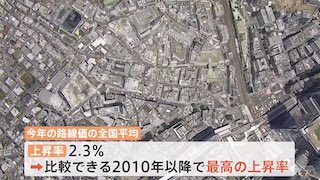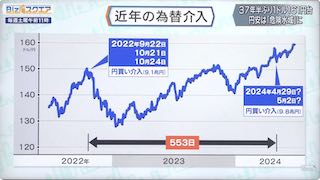Jun 30 (News On Japan) - The yen, symbolized as ¥ and designated by the currency code JPY, stands as one of the most significant and widely traded currencies in the global market.

Its influence extends across continents, playing a critical role in international finance and trade. For traders and investors, understanding the yen's historical context and current trading dynamics is crucial. Among the numerous platforms facilitating forex trading, HFM broker provides an accessible gateway for trading the yen and other major currencies.
The Historical Roots of the Yen
The yen was introduced by the Meiji government in 1871 as a part of the modernization efforts following the end of Japan's feudal era. The currency was designed to unify the monetary system, replacing a myriad of local currencies that complicated trade and economic growth. Modeled after the European decimal system, the yen was intended to simplify transactions and facilitate international trade.
Initially pegged to gold, the yen adopted the gold standard, aligning with many Western nations. This peg lasted until World War I, after which Japan experienced economic turmoil, leading to fluctuations in the yen's value. Post-World War II, the Bretton Woods system pegged the yen to the US dollar at a fixed rate of 360 JPY to 1 USD. This rate remained until 1971 when the Bretton Woods system collapsed, leading to a floating exchange rate system where the yen's value was determined by market forces.
Yen's Role in Modern Forex Trading
In the contemporary financial landscape, the yen is one of the top traded currencies, often used as a benchmark in various trading strategies. Its liquidity and stability make it a favored choice among traders. The yen's movement is closely monitored against other major currencies, such as the US dollar (USD/JPY), the euro (EUR/JPY), and the British pound (GBP/JPY).
Several factors influence the yen's value in the forex market. Japan's economic data, including GDP growth, inflation rates, and employment figures, play a significant role. Additionally, global geopolitical events and economic policies of major trading partners impact the yen's strength. For instance, changes in the US Federal Reserve's monetary policy can lead to significant fluctuations in the USD/JPY pair.
Trading the Yen: Strategies and Considerations
Forex traders employ various strategies to capitalize on the yen's movements. One popular approach is carry trading, which involves borrowing funds in a low-interest-rate currency (often the yen) and investing in a higher-yielding currency. Japan's historically low interest rates make the yen an attractive currency for this strategy. However, traders must be cautious of market volatility and potential shifts in interest rates that could affect their positions.
Technical analysis is another critical tool for trading the yen. Traders analyze historical price charts, looking for patterns and trends that may indicate future movements. Indicators such as moving averages, relative strength index (RSI), and Bollinger Bands are commonly used to assess the yen's potential direction.
For those seeking to trade the yen, selecting a reliable broker is essential. HFM broker, for instance, offers a robust platform with advanced trading tools and resources. This broker provides access to real-time market data, comprehensive charting tools, and educational materials to help traders make informed decisions. By leveraging these resources, traders can enhance their strategies and improve their chances of success in the forex market.
The Yen in the Global Economy
The yen's significance extends beyond forex trading. It serves as a key reserve currency, held by central banks around the world. Japan's economic policies and the Bank of Japan's monetary stance often influence global financial markets. For example, the Bank of Japan's implementation of negative interest rates in 2016 aimed to stimulate economic growth but also affected the yen's value, leading to substantial market reactions.
Moreover, Japan's trade relationships play a crucial role in the yen's dynamics. As a major exporter, Japan's trade balance can impact the yen's strength. A trade surplus typically strengthens the yen, while a deficit can weaken it. Therefore, traders and investors closely watch Japan's export and import data to gauge potential movements in the yen.
The yen's journey from its inception in the late 19th century to its current status as a major global currency is a testament to Japan's economic resilience and adaptability. For traders, understanding the historical context and the factors influencing the yen's value today is essential. Platforms like HFM broker provide the tools and resources needed to navigate the complexities of forex trading, enabling traders to make informed decisions and capitalize on market opportunities.
As the global economy continues to evolve, the yen will undoubtedly remain a pivotal currency, reflecting both Japan's economic conditions and broader market trends. For those engaged in forex trading, staying informed and adaptable is key to leveraging the opportunities presented by the ever-changing landscape of the yen and the broader currency markets.















